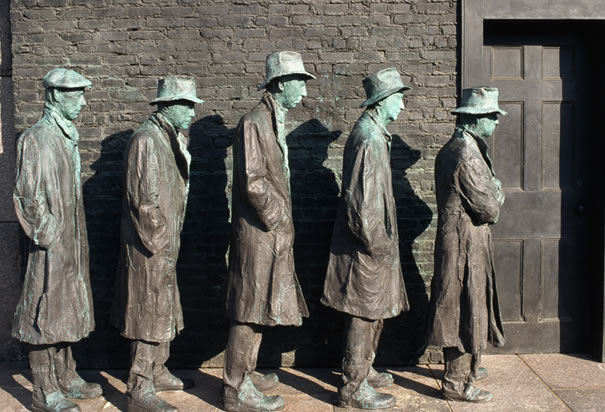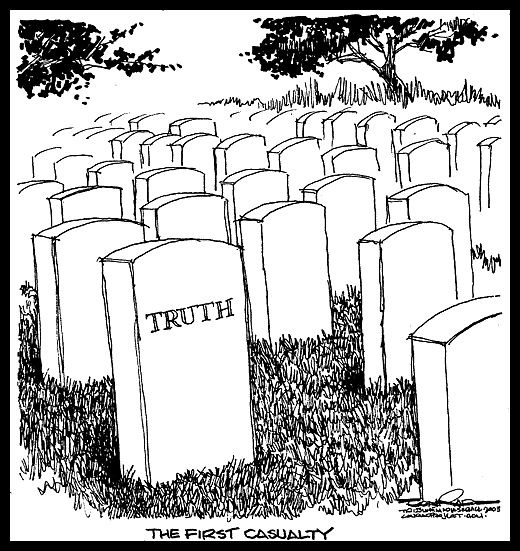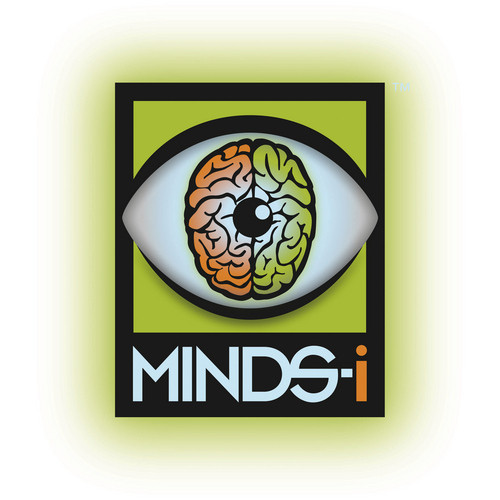

|
Mystery Men say that sundered by enormous nights — George Sterling, born this day in 1869 |
1 December 2014
|
|
Surprise — people aren’t hard-wired to be selfish Evolutionary biology has left us a distorted view of nature, and with it a distorted view of people. It wasn’t so much Darwin as the Social Darwinists who came after him, and the 20th Century reformulation of evolutionary theory (neo-Darwinism) that is to blame. Daniel Keltner is a progressive psychologist from Berkeley. Here he is, talking about scientific findings that humans are kinder, more generous and more empathetic than theory says they ought to be. Notice that the explanation he offers is in terms of the selfish gene, which explains only protective behavior toward our own close relatives, not Good Samaritan behavior toward strangers. He cites the paradoxical (but persistent) finding that poor people are more generous with their money than rich people. In fact, cooperation and empathy are mediated in very old parts of our brain, much older than mammals, and come from ancient ancestors that did not nurture their own young. |
2 December 2014
|
|
Quality, not quantity Anton Webern, born this day in 1883, is known for putting a lot of detailed attention into miniature compositions. These Five Pieces for Orchestra were written in 1911-13, concurrent with the very beginnings of serialism in the composition of Schoenberg. |
3 December 2014
|
|
The times are urgent. Let us slow down. …most insidious…is the idea that only conscious effort, more doings, can get us out of the mess we find ourselves in. It is the tyranny of human agency, the human will to power.… …the ongoing professionalization and bureaucratization of counterculture means that our voices are losing their subversive tones. We are learning slowly that the system endorses its own critique.… I think today’s widespread despair, today’s disillusionment with change, is the amniotic chamber, the alchemical depths where our vision of what is possible is being transformed, where we are being remade…slowly. Where we are realizing that our theories of change need to change. …we are active conspirators with, and participants in, the system we resist – and, though we might like to deny it, this is our story, our saga. …even if we could win all our counterculture wars, it would matter little if we have not evolved a politics that acknowledges the little things, that helps us heal together, and that engages us in ways that trusts us to find our own way through the messiness of human sentience. …our shared intention [is] to live an enchanted life in a wider spectrum of values. Read more from Bayo Akomolafe. |
4 December 2014
|
|
Vítězslav Novák Born this day in 1870, Vítězslav Novák was a Czech composer I have never heard of before today. |
5 December 2014
|
|
“Beauty is simply reality seen with the eyes of love.” — Evelyn Underhill, born this day in 1875 “After all it is those who have a deep and real inner life who are best able to deal with the irritating details of outer life” |
6 December 2014
|
|
Who amasses a fortune derives a sense of security and wellbeing less from the balance in his bank account than from the knowledge that he has mastered the world of business and should he lose all, he is confident he could do it again, and do it the better for the mistakes he has made. I have not amassed a fortune, but I have brought my mother and father together and convinced them to fertilize an egg, from which I built a human body; and learned to walk and to think, to communicate and to care for myself and others. I am pleased to have my present body and mind, but better yet, I am confident that if I should die someday, I could do it all again, and do it the better for the mistakes I have made in this lifetime. — Josh Mitteldorf |
7 December 2014
|
|
The lengths to which a president will go... to deceive his people into a war was just impressed on me as I read David Swanson’s recent article on Pearl Harbor and FDR. His article puts the lie to the myth about “The Good War”. (Here is another Swanson article.) “There never was a good war or a bad peace,” quoth Poor Richard. “I think that people want peace so much that one of these days government had better get out of their way and let them have it.” –Eisenhower |
8 December 2014
|
|
What greater gift can a word artist give, but this: that he quiet our greatest and most pervasive fear, the fear of death and where it leads. Milton plied his art to give us that gift… FLY envious Time, till thou run out thy race, John Milton, born this day in 1608 |
9 December 2014
|
|
I had never heard of a ‘Decimal Sonnet’, either…
every wild lesson a love lesson, not whipped but charmed into us Come quickly, one foot to the grass and then the other; — Jo Bell …hear the blessed ouzel singing confidingly in the shallows of the river,— |
10 December 2014
|
|
Trop de gens ont décidé de se passer de la générosité pour pratiquer la charité. Too many have dispensed with generosity in order to practice charity. — Albert Camus |
11 December 2014
|
|
Restorative Justice Turns Violent Schools Around Before American Paradigm Schools took over Philadelphia’s failing John Paul Jones Middle School, the school was known as ‘Jones Jail’ because of persistent problems with violence and a tight security environment. But rather than beef up the already heavy security to ensure safety and restore order, American Paradigm stripped it away. During renovations, they removed both metal detectors and barred windows. The police predicted chaos. But, instead, new numbers seem to show that in a single year the number of serious incidents fell by 90 percent. |
12 December 2014
|
|
17 Utopian Goals Ideals to hold on to in hard times…
— read 13 more, and a book excerpt from David Harvey at the White Review |
13 December 2014
|
|
The benefits of meditation There are no benefits of meditation. Meditation is its own reward. If you are following instructions in order to improve your life or your feelings, to make you healthier or relieve stress, you are in the wrong place. That’s not to say that good things can’t happen to people who meditate, only that people who are seeking a goal, any goal, are not meditating. Practice not knowing what comes next. Practice thinking and acting from outside any habit. Practice naïvite. Practice beginner’s mind. Practice being free. — Josh Mitteldorf An approach to life, not an investment in your future. |
14 December 2014
|
|
Nothing is more curious than the self-satisfied dogmatism with which mankind at each period of its history cherishes the illusion of the finality of its existing modes of knowledge. — Alfred North Whitehead |
15 December 2014
|
|
Freude, tochter aus elysium Seekers suffer from the surreptitious imagination that the pursuit of Joy condemns them to a dependency relationship with circumstances and events. The Sage sees that Joy is all there is. — Night Sky Sangha |
16 December 2014
|
|
John Tierney on How to Be Yourself Without Really Trying After we have been so thoroughly socialized, trained to be hypersensitive to the social context of our behavior, how can we regain access to the child’s spontaneous playfulness, the artist’s inner genius, and the sage’s intuitive wisdom? — read Tierney’s review of Edward Slingerland’s new book “The worst kind of Virtue never stops striving for Virtue, and so never achieves Virtue.”—Lao Tsze |
17 December 2014
|
|
“We cannot successfully run a modern war if we tell the truth.” — Sherwood Eddy |
18 December 2014
|
|
The Author of Chaos Today is the 70th birthday of Mitchell Feigenbaum. More than anyone else, it was Mitchell who shook some sense into modern physicis… Since the time of Newton, the science of physics has embraced a reductionist paradigm. The impulse is always to understand the complexity of our world by breaking it down into its small and tiny (and tinier) components, showing that the behavior of the components is simple even when the behavior of the whole is complex. The advantage of this approach was that we got a sense of what the fabric from which reality is made. The disadvantage was that the result gave us less and less of a clue how to understand anything that we might see and wish to understand. For example, in astronomy, we can calculate the orbit of any planet going around the sun. We can calculate the orbits of 9 planets (or a million asteroids) so long as we assume that each of them is interacting only with the sun. The sun is a thousand times bigger than the largest planet, so we can do pretty well assuming that each planet feels only the gravity of the sun. Perhaps it is no accident that atoms are understood in the same way. The standard way to calculate the physics of an atom is to assume that each electron feels only the pull of the nucleus, and individual electrons don’t interact among themselves. All of physical chemistry is understood on this basis. The trouble is that the 3-body problem is unsolvable. We can easily write down the equation, but we can’t write a solution to the equation, even for three interacting bodies, let alone 9 or 1023. It was Mitchell (together with Benoit Mandelbrot) who pointed us to think about the complexity of systems made out of many interacting parts, and discovered some laws that emerged from that complexity. Amazingly, some of those laws don’t depend on the nature of the individual parts that classical physics worked so hard to discern. Mitchell gave us chaos theory, described in Gleick’s classic book. |
19 December 2014
|
|
The future of the world depends on independence of thought.
Human existence may be simpler than we thought. There is no predestination, no unfathomed mystery of life. Demons and gods do not vie for our allegiance. Instead, we are self-made, independent, alone, and fragile, a biological species adapted to live in a biological world. What counts for long-term survival is intelligent self-understanding, based upon a greater independence of thought than that tolerated today even in our most advanced democratic societies.
— from E. O. Wilson’s new book |
20 December 2014
|
|
Separating Religion from Religion All religions have their origin and deep core in the mystical experience that transforms the mundane, and leaves us in a state of boundless appreciation and wonder. All religions have their origin in consolidation of the power of the priest, reinforcing the rhapsodic allegience to tribe and blind obedience necessary for acts of war and plunder. — Josh Mitteldorf |
21 December 2014
|
|
‘We would give anything for what we have.’ |
22 December 2014
|
|
Flawless performance of an 8-year-old This is not the work of a virtuoso prodigy, but nevertheless it is played sensitively with a great deal of grace and humor, and thorough control of the voicing. — Watch Jacques Ibert’s Little White Donkey (from Histoires) |
23 December 2014
|
|
Peace—It’s up to us War is good for authoritarian government, for bankers and military contractors. The rest of us, not so much. The people have to be cajoled, lied to, psychologically manipulated and economically coerced into war. It’s getting harder and harder. The tragic thing is that wars can now be fought from a distance with robots and drones and smart bombs. The people have said, “We won’t fight,” but that’s no longer enough, because large wars can be conducted with very few fighters. In the past, people have told their governments that they will not tolerate war. We take a strong stand, and they have to listen. It was popular pressure that kept the US from bombing Syria last year. It was a popular movement that ended the Vietnam War. At the end of the senseless and tragic devastation of WW I, the people of the US were united in opposition to war, and actually dragged our government into an international pact to outlaw all future war. If you step up alongside me, together we can enforce this law. — JJM |
24 December 2014
|
|
Hodie Christus Natus Est Listen to Vaughan Williams. I like especially the beginning and Part 7 |
25 December 2014
|
|
…the immediate experience of what, as the bottomless ground of Being, cannot be apprehended by intellectual means, and cannot be conceived or interpreted even after the most unequivocal and incontestable experiences: one knows it by not knowing it. For the sake of those crucial experiences Zen Buddhism has struck out on paths which, through methodical immersion in oneself, lead to one’s becoming aware, in the deepest ground of the soul, of the unnamable Groundlessness and Qualitylessness˙nay more, to one’s becoming one with it. — Eugene Herrigel, from Zen in the Art of Archery |
26 December 2014
|
|
Fed by the headwaters of mystery are our souls. — Josh Mitteldorf |
28 December 2014
|
|
The Age of Capitalism is Over ‘We live in capitalism. Its power seems inescapable. So did the divine right of kings. Any human power can be resisted and changed by human beings.’ Read Rebecca Solnit’s article, The Age of Capitalism is Over |
29 December 2014
|
|
With Affection for Dear Rudyard If you can keep your heart when all about you — JJM, after If by Rudyard Kipling, who is 149 years old today |
30 December 2014
|
|
Do we live in our brains? For more than 100 years, scientists have thought that the brain is like a computer, and our memories are stored in the synapses, or connections between neurons. It is just this model at which David Glanzman and his UCLA laboratory took aim in a paper last month. He trained snails to respond reflexively to certain chemical cues, then used hormones to block the formation of new neural connections. The memorized reflexes were gone. But then, by chemically restoring nerve growth, he was able to bring back the trained behaviors! So where were the memories stored while the nerves were absent? Glanzman does not shy from the full implications of this revolutionary finding. “These results challenge the idea that stable synapses store long-term memories.” — read more at my year-end Science Blog |
31 December 2014
|
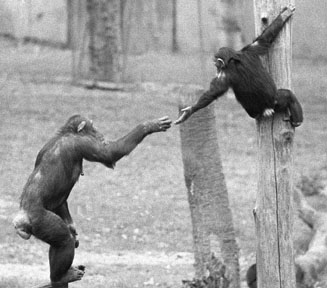



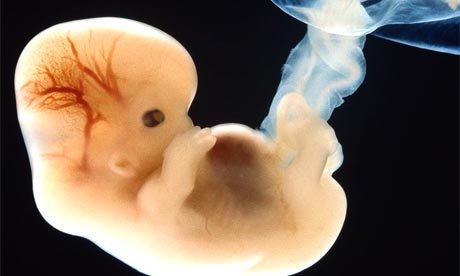


.jpg)
